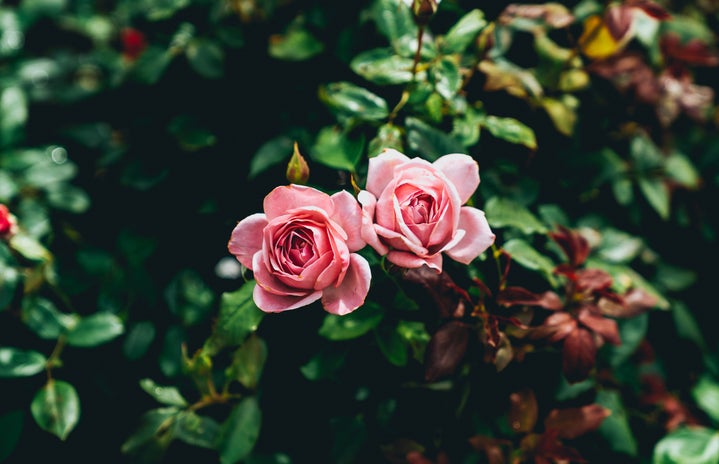One in ten women are affected by Polycystic Ovarian Syndrome (PCOS). That means about 1 girl in my book club, 10 girls in my database lecture and 5 million women in the United States have PCOS–some of which may have PCOS and not even know it. I was among one of the unaware when I received my diagnosis at the age of 19.
I hadn’t had a period in eight months and my mom was urging me to go to the doctor. I knew a visit to the gynecologist would not elicit good news and I was terrified to be poked, prodded and told to go on X-diet or take Y-medication. Nevertheless, I went to get an ultrasound and blood work done. It took the doctor ten minutes to inform me that I had PCOS. I remember feeling the back of my throat strain and tears well in my eyes as the doctor droned on about possible infertility, thyroid and diabetic issues. I felt as though the life in my body was being drained but I finally looked up as the doctor listed ways to help. Just as I had expected, she remarked, “Would you consider birth control?” My mom shut the idea down instantly and the doctor sent me home with the simple but heavy statement, “Lose 10% of your body weight and you should be alright.” I thought to myself, “Why is that the instant solution for an age-old hormonal disorder?”
My doctor may have sent me home, but in the months to follow I felt as though I was simply a hollow costume walking about with nothing to show inside. I lost the 10% my doctor advised me to. But with that 10%, my hormones refused to regulate and instead, they began to fluctuate worse than ever. I was constantly angry and picking fights. I felt incredibly alone and like no one understood me but I simultaneously wanted others to read me like a book. My relationships with friends and family suffered and I could feel myself turning into someone unrecognizable.
There is some relief from the knowledge that so many other women struggle with a similar sense of losing themselves. After talking to my friend, the parallels in our stories were uncanny. We were both diagnosed at 19 after noticing changes in our bodies and we both faced hormonal imbalances. But PCOS has never been as simple as that.
There are 4 types of PCOS that have been explicitly identified: insulin-resistant, post-pill, adrenal and inflammatory. Each type comes with its own set of specific issues and each requires unique treatment. After two years, mine has been narrowed down to insulin-resistant PCOS but this knowledge has not helped alleviate any symptoms in the slightest. When I wake up, I’m immediately hit with a wave of exhaustion. After I eat an entire meal, I will still be starving. My hands and feet are always tingling and my weight is constantly fluctuating. Simultaneously as I struggle to keep these symptoms in check, cysts are growing on my ovaries, and if unattended to, could burst and create a world of pain for me.
At times I feel like the weakest player on Street Fighter, constantly getting pummeled with blows, unable to stand back up. I’m left feeling hopeless, like there’s nothing that can cure me and restore my former body and mind. I find myself looking back at old photos of myself before I developed PCOS, and my heart feels like someone reached in and squeezed all of the oxygen out of it. And like a Catch-22, all of these negative emotions that flood my brain turn into excess heaps of cortisol, attacking every part of my body. With high cortisol, a steroid hormone activated by stress, anxiety, depression and irritability take over your life.
I could see that I was losing myself this past year. I was riddled with anxiety, constantly self-sabotaging myself and in turn, my relationships suffered. My emotions would collide with each other and long meltdowns streaked with tears and screaming were followed by a smile and no memory of why I was even upset. The person I had turned into did not seem real, my responses to things felt automated and uncontrollable. Not only did I not have a full grasp of my emotions, but my own reflection became a foreign entity to me. When I looked into a mirror, the person I saw was unrecognizable and I would feel overwhelmed that I looked ugly or unattractive. My efforts in school and work weren’t any better and started lacking. My grades dropped drastically and I stopped attending classes, embarrassed by my academic demise. I no longer felt human and instead, I felt more like an alien who had inhabited my old body, stretched it out and forgot to replace my brain so I was left suffering and trapped inside. It was apparent that this was no way to live life and as senior year began, I knew I would have to elicit some sort of change to help myself both mentally and physically.
My journey to feeling human again is just starting but I have to remind myself every day that the changes I make now will have lifelong benefits. I can foresee how tough the path to regaining myself will be, but with every step, I have to remember that the person I am working towards can not and will not be a replica of the girl I was before I was diagnosed with PCOS. The woman I am working to become will be someone I have yet to meet, but someone I know I will be glad to be.


